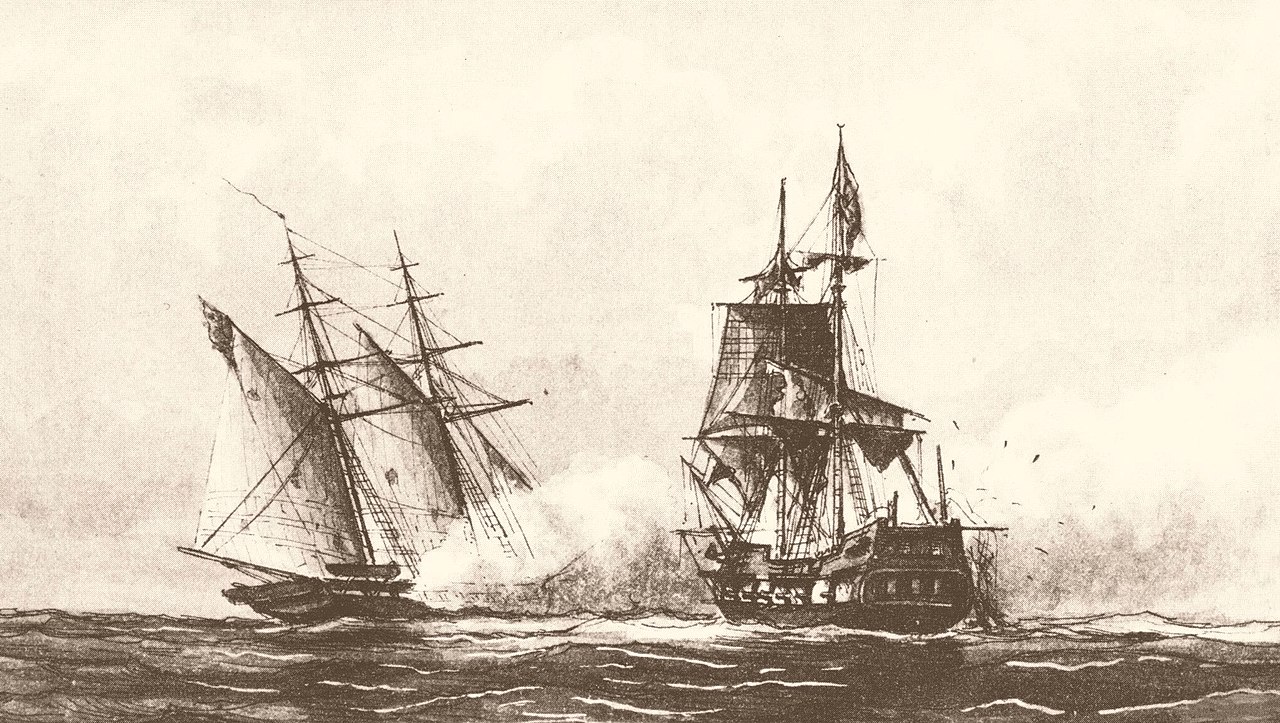The United States & The First Barbary War
Patrick H
-
The Barbary Corsairs (Berbers) were pirates who operated for several hundred years off the Mediterranean coast of North Africa and into the Atlantic. Their primary goal was to abduct westerners for the North African slave market, or free these prisoners for ransom. They preyed upon all ships, but would refrain from attacking ships of nations which paid them hefty tribute to stay away from.Following the American Revolution, merchantmen of the 13 colonies reflagged themselves as American ships, thus they lost the protection that the Royal Navy had before provided (the French Navy protected American ships during the revolution). The American government initially paid tribute to the Barbary states in order to afford their merchantmen safe passage, but following the election of Thomas Jefferson, the tribute fees were greatly increased. This enraged Jefferson, who refused to ever pay another tribute. The pirates began attacking American shipping, taking their crews hostage. Jefferson dispatched the brand new United States Navy to Africa to deal with this threat.
 |
| The Enterprise capturing the Tripoli |
The U.S. fleet, which was dispatched on 13 May 1801, was comprised of the USS Essex, Philadelphia, President and Enterprise. This squadron was under the command of Commodore Richard Dale. The original purpose of this fleet was to act as a show of force, but upon arriving in Africa, they found that the Sultan of Tripoli had declared war on the United States for refusing to pay tribute. The U.S. forces acted quickly, defeating the 14 gun Tripoli on 1 August. Following this escalation, the U.S. Congress, in 1802, authorized the use of military force against the Barbary pirates to protect American interests. This was the first such action in U.S. history.
The Americans found an ally in the Kingdom of the Two Sicilies, which provided manpower, supplies and ports for the American ships. Beginning in 1803, the U.S. navy maintained a blockade of the Barbary States. That October, the Philadelphia ran aground near Tripoli harbour, and was captured by the Berbers. All it's complement was taken ashore and held hostage.
 |
| Decatur boarding the Tripoli gunboat - Dennis Malone Carter |
On 16 February 1804 (#OnThisDay), Lt. Stephen Decatur led a small party of U.S. Marines aboard a captured Tripolitanian ketch, rechristened the USS Intrepid, who overpowered the guards aboard the capture Philadelphia in Tripoli harbour, setting fire to the ship to deny it's use to the Berbers. The U.S. Navy would continue to harass the city in a series of inconclusive battles until a force of American Marines and mercenaries marched overland from Egypt and captured the Tripolitanian city of Derna. This was the first time an American flag was raised in victory over foreign lands.
War exhausted, blockaded, and facing a land based assault, the Berbers sued for peace. There was an exchange of prisoners, and the U.S. provided a ransom of $ 60, 000 due to a disparity in the number of prisoners. This was the first time that the United States had been given a chance to prove that it could conduct a war far from home. It would not be the end of piracy however, by 1807 the Berbers would be at it again, only to be stopped once and for all in 1815 during a second U.S. intervention. The action by the U.S. had other, unintended, consequences, and the U.S. naval presence in the area was a contributing factor to tensions that led to the war of 1812.
